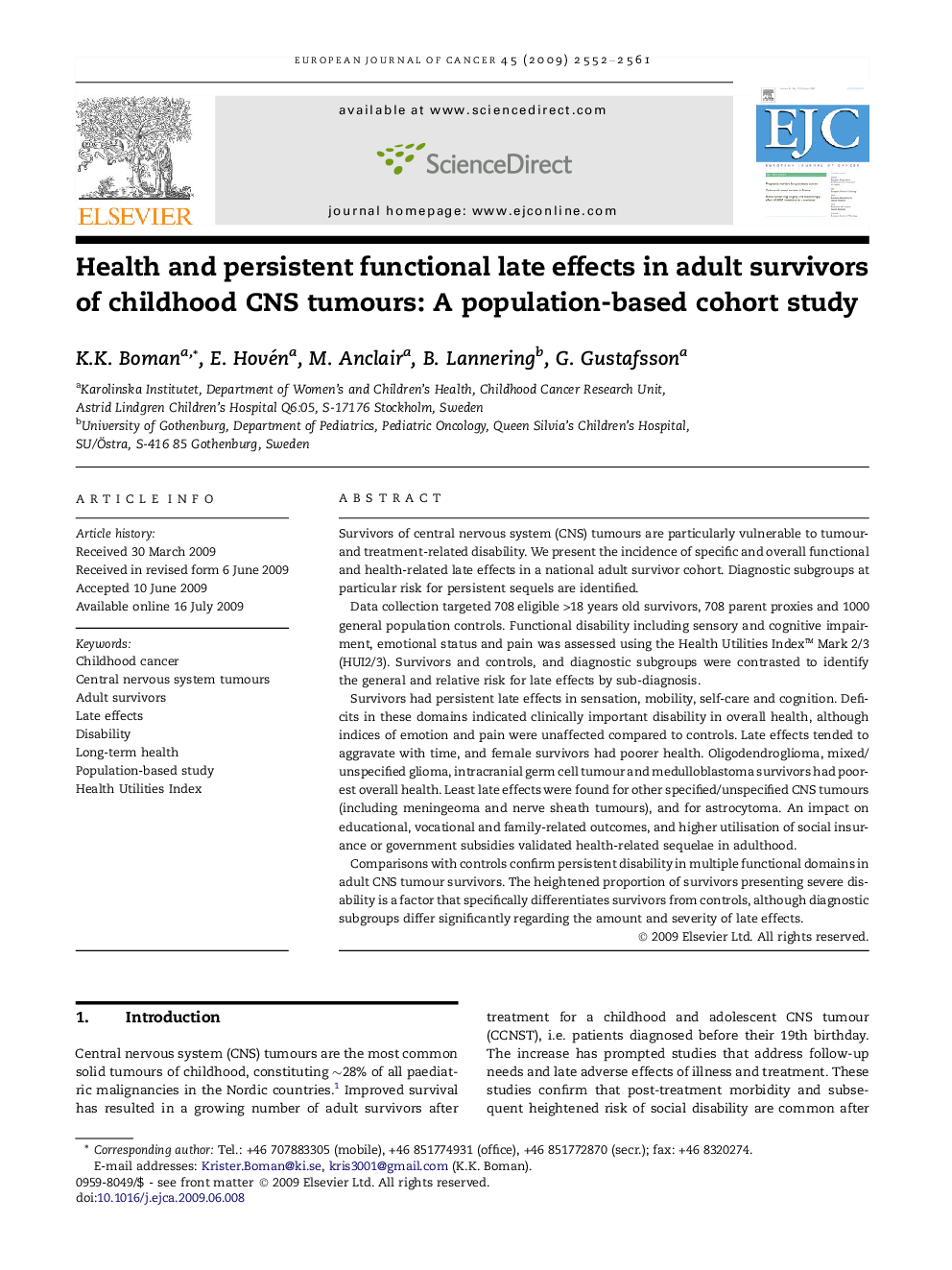| Article ID | Journal | Published Year | Pages | File Type |
|---|---|---|---|---|
| 2124402 | European Journal of Cancer | 2009 | 10 Pages |
Survivors of central nervous system (CNS) tumours are particularly vulnerable to tumour- and treatment-related disability. We present the incidence of specific and overall functional and health-related late effects in a national adult survivor cohort. Diagnostic subgroups at particular risk for persistent sequels are identified.Data collection targeted 708 eligible >18 years old survivors, 708 parent proxies and 1000 general population controls. Functional disability including sensory and cognitive impairment, emotional status and pain was assessed using the Health Utilities Index™ Mark 2/3 (HUI2/3). Survivors and controls, and diagnostic subgroups were contrasted to identify the general and relative risk for late effects by sub-diagnosis.Survivors had persistent late effects in sensation, mobility, self-care and cognition. Deficits in these domains indicated clinically important disability in overall health, although indices of emotion and pain were unaffected compared to controls. Late effects tended to aggravate with time, and female survivors had poorer health. Oligodendroglioma, mixed/unspecified glioma, intracranial germ cell tumour and medulloblastoma survivors had poorest overall health. Least late effects were found for other specified/unspecified CNS tumours (including meningeoma and nerve sheath tumours), and for astrocytoma. An impact on educational, vocational and family-related outcomes, and higher utilisation of social insurance or government subsidies validated health-related sequelae in adulthood.Comparisons with controls confirm persistent disability in multiple functional domains in adult CNS tumour survivors. The heightened proportion of survivors presenting severe disability is a factor that specifically differentiates survivors from controls, although diagnostic subgroups differ significantly regarding the amount and severity of late effects.
